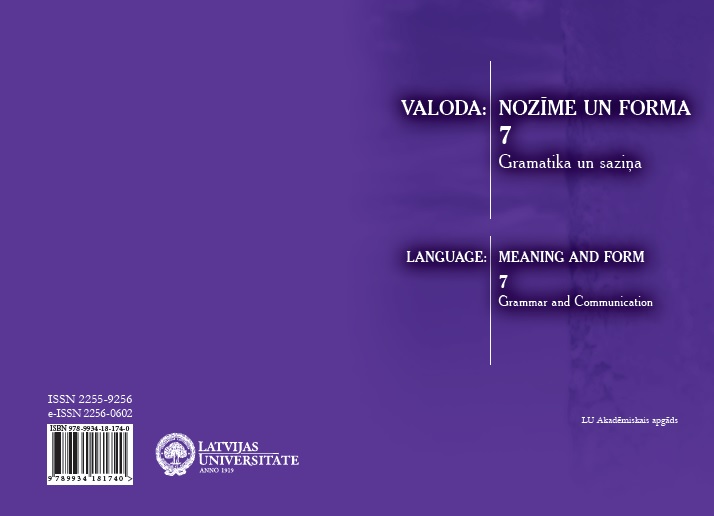Darbības vārda sintaktiskās nullformas latviešu valodā
Syntactic zero forms of verbs in Latvian
Author(s): Ilze LokmaneSubject(s): Language and Literature Studies, Theoretical Linguistics, Applied Linguistics, Syntax, Baltic Languages
Published by: Latvijas Universitātes Akadēmiskais apgāds
Keywords: nulles zīme; nullforma; paradigma; sintaktiskā redukcija; potenciāli verbāls teikums;
Summary/Abstract: The article analyzes different interpretations of zero signs in linguistics, particularly zero forms in morphology and syntax. Special attention is devoted to zero finite verb forms, which helps to set the boundaries of syntactic paradigm and therefore differentiate between full and partial realizations of the same syntactic pattern on the one hand, and different patterns on the other.In Latvian, zero forms of finite auxiliary verbs, copulas, as well as lexical verb būt ‘to be’ are possible. However, the author argues that none of these are obligatory. This interpretation differs from the one generally accepted in Slavonic linguistics, whereas in Russian zero form of copula in present tense is obligatory. The concept of syntactic zero accepted in this article does not fully correspond to the concept of zero morpheme either.It has been shown that zero forms should be postulated only in contextually independent utterances, whereas ellipsis refers to syntactic processes in discourse.
Journal: Valoda: nozīme un forma
- Issue Year: 2016
- Issue No: 7
- Page Range: 116-126
- Page Count: 11
- Language: Latvian

